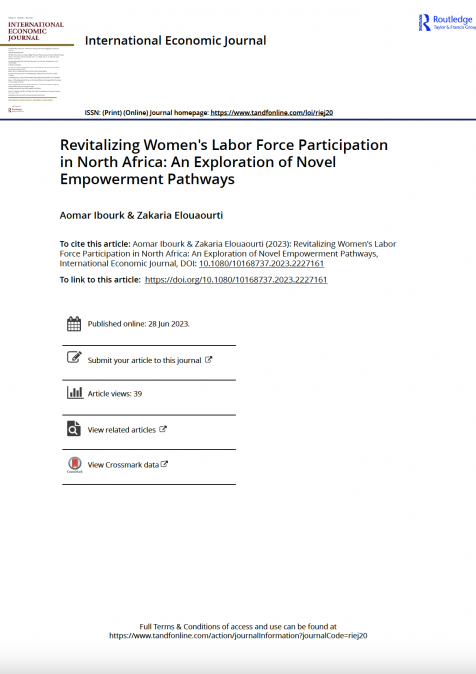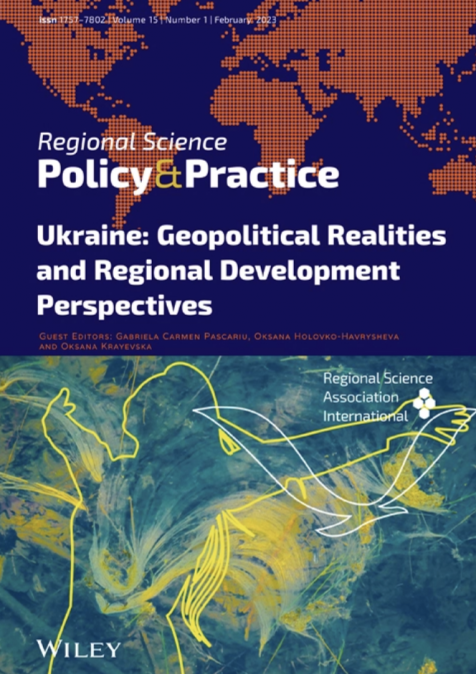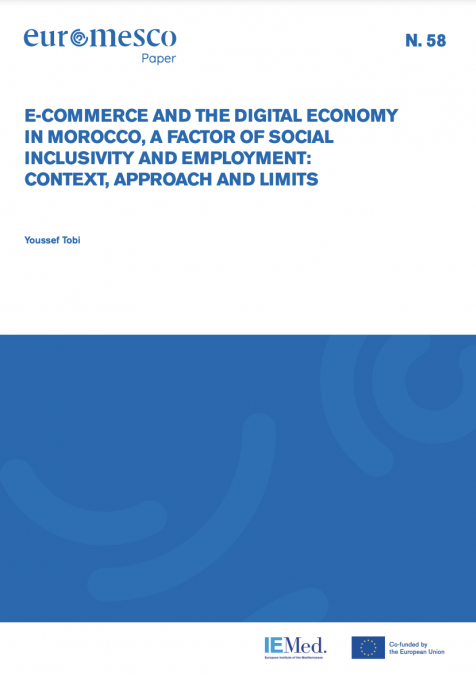Publications /
Policy Paper
This paper was originally published on tandfonline.com
This paper explores new pathways to women's empowerment, including household structure, family support, satisfaction and self-esteem, and trust in institutions and politicians, and their impact on labor market participation, with a specific focus on gender differences. Using a microeconomic database of 7,860 individuals from North Africa and employing a Probit model, we find that gender significantly influences labor market participation. Surprisingly, our results reveal that education operates in an unexpected direction in the North African region, confirming the “MENA paradox”. Moreover, household structure's impact on labor decisions varies by gender, as gender norms prevalent in male-dominated societies hinder women's labor market participation, leading to a “marriage penalty.” In a similar vein, our estimations reveal a significant positive correlation between men's belief that “men should have greater job rights than women during scarce work periods” and their labor force participation, shedding light on the influential role of gender norms in North Africa. Our study emphasizes the critical role of networking, social capital, and how North Africans' perception of political life impedes their labor force participation. As for policy implications, our contribution illuminates new pathways for women's empowerment, advocating for comprehensive legislative reforms to promote gender equality and foster inclusive development.









